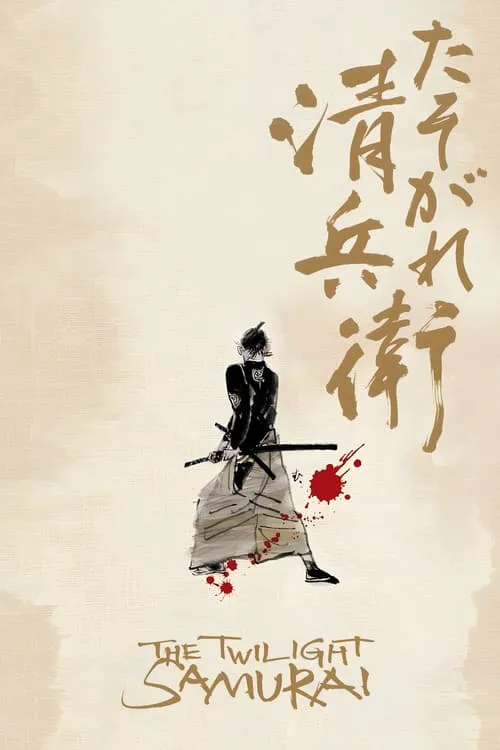The Twilight Samurai

Plot
In a time of social upheaval and transition, a samurai's life is never easy, but for Seibei Iguchi, the struggles are compounded by his meager income, senile mother, and two young daughters to care for. It's the turn of the nineteenth century, and the once-noble class of samurai is facing a new reality. Their privileged position in society is being slowly dismantled, and the rigid code of honor that once defined their lives is being tested like never before. On the surface, Seibei's world appears bleak. He's a low-ranking samurai, stuck in a dead-end job, with little chance of advancement. His family's financial situation is precarious, and he's often forced to rely on the charity of others to make ends meet. His mother, too, is a constant burden, her mind clouded by age and Alzheimer's disease. And to make matters worse, his daughters, Tomoe and Kyoko, are the lights of his life, but he feels woefully inadequate in providing for them. Yet, amidst this drab and unforgiving landscape, Seibei finds moments of beauty and hope. His daughters are a constant source of joy, their smiles and laughter the one thing that keeps him going on the toughest of days. And then there's Tomoe, a lovely young woman who was his childhood friend and companion. When she returns to his life, Seibei is struck by her radiance, her kindness, and her understanding. In many ways, Tomoe is the embodiment of the traditional Japanese ideals of femininity and modesty, and Seibei is deeply drawn to her. However, Seibei's feelings for Tomoe are complicated by his duty as a samurai. He's bound by the strict code of honor that governs their lives, a code that prohibits romantic relationships between equals. As a low-ranking samurai, Seibei's social status is below Tomoe's, and she's a member of a higher-ranking family. The rules of etiquette dictate that he should not pursue her, that she's not available to him. And yet, Seibei can't help but feel a deep emotional connection to Tomoe, a connection that threatens to upset the delicate balance of their social lives. Meanwhile, the world around Seibei is changing rapidly. The Japanese feudal system is crumbling, and the traditional structures that once governed their lives are being dismantled. The once-mighty samurai class is being forced to adapt, to find new ways to survive and thrive in a changing world. Seibei's sense of purpose is being eroded, his sense of identity torn apart by the conflict between his duty as a samurai and his desire for a better life. As the story unfolds, Seibei's struggles become more and more intense. He's forced to navigate a complex web of relationships, to balance his duty to his family with his duty to the code of honor that governs their lives. He's torn between his desire for Tomoe and the knowledge that pursuing her would bring shame and dishonor to his family. In the end, it's not the external world that challenges Seibei's sense of purpose, but his own inner conflict. The Twilight Samurai is a poignant and nuanced portrait of a man struggling to find his place in a rapidly changing world. Seibei's story is a reminder that sometimes the greatest challenges we face are the ones that arise from within, that our own sense of duty and honor can be the greatest obstacles to happiness and fulfillment. Through its thoughtful exploration of the human condition, this beautiful and moving film reminds us that, no matter how bleak the circumstances may seem, there's always hope, always a chance for redemption and a better tomorrow.
Reviews
Recommendations




